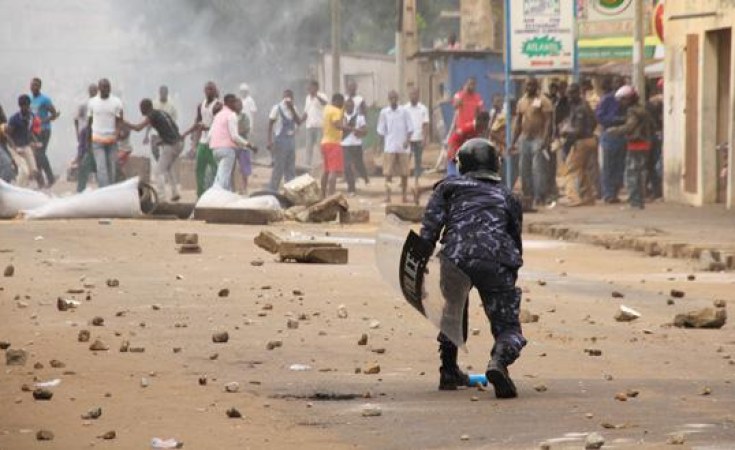Demonstrations ahead of upcoming elections in Angola and Togo could turn violent.
Angola: Risk of violent protest will be elevated in Luanda around the August 31 polls.
On July 16, civil society organisations demanded the postponement of the elections scheduled for August 31 over claims of a lack of adequate provisions for free and fair polls. A day earlier, police arrested several hundred demonstrators for alleged public disorder at the Sao Paolo market.
In the coming weeks, Luanda and major cities are likely to experience an upsurge in public protests from opposition parties, war veterans and civil society groups. These protests will pose a risk of death and injury to protesters and bystanders, as a violent reaction by security forces and pro-government militia would be likely in response.
Violence will likely take the form of running street battles between protesters and security forces, with protesters throwing projectiles and police firing tear gas canisters and rubber bullets.
Togo: Opposition protests likely to cause disruption and raise injury risks in Lomé as security forces are likely to respond violently.
The 'Save Togo' opposition collective (CST) announced a week of peaceful demonstrations beginning on July 23 and culminating in a planned procession through Lomé on July 29 to mark the 20th anniversary of the assassination of a politician.
A series of protests in recent weeks, organised by the CST, have been met by a heavy-handed response from security forces. However, a rally at the Béninglato Oscar Anthony Stadium on July 15 was not impeded despite a strong police presence. This is likely to embolden the CST to organise further demonstrations, including a protest scheduled for July 21. Protests are likely to be along the main thoroughfares of the central business district, raising risk of disruption to land cargo and injury to bystanders.
The CST is unlikely to enter negotiations with President Gnassingbé if demands to change the electoral code ahead of October's parliamentary elections are not met. President Gnassingbé called for dialogue following the resignation of Prime Minister Gilbert Fossoun Houngbo and his government on July 11, but the CST declared its members would not be party to a new government. An attack on the home of opposition leader Jean-Pierre Fabre by security forces, the opposition claims, is evidence of continuing violence against the opposition despite calls for dialogue.
Exclusive Analysis is a specialist intelligence company that forecasts commercially relevant political and violent risks worldwide.They leverage their source network and methodology to produce accurate and actionable forecasts. Their global network of 200 expert analysts and 1,000 sources reports risk-relevant, specialist information to their core London-based team. Their clients are from a broad range of industries including insurance, banking and asset management, energy, mining, aviation, shipping and telecoms.


